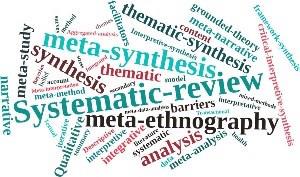Make sure to check out these classes below that are related to health, science, and communication. If you have any questions or want to learn more about a course, please feel free to email the instructor.

Mass Media & Health
Instructor: Kim Walsh-Childers
Course Description: This course introduces students to current research on the positive and negative influences of mass media on individual behavior and the public health environment. We address the uses and effects of social media and other online information, entertainment content, advertising and news, examining impacts on individual health and health policy.

Communication in Healthcare
Instructor: Carma Bylund
Course Description: In this course, we will examine the role communication plays in healthcare, across the continuum from prevention to end of life. We will explore descriptive studies as well as intervention studies (e.g., How can communication in healthcare be improved?) We will consider the roles of physicians, nurses, allied health providers, patients, and families.

eHealth: Digital Communication in Health Care
Instructor: Jordan Alpert
Course Description: This course explores the growing applications of information technologies for health care delivery, risk communication, communication campaigns, health information dissemination, health education, disease prevention, health behavior change, coordination of care, and health care delivery system management.

Translational Health and Science Communication
Instructor: Janice Krieger
Course Description: This seminar focuses on how principles of communication science can inform the development of strategies that enhance the accessibility, understandability and usability of science in the public sphere.

Science Health Communication
Instructor: Debbie Treise
Course Description: This seminar is designed as a broad overview of the fields of and theories used to investigate and understand science and health communication and communication’s effect on public understanding.

Family and Health Communication
Instructor: Carla Fisher
Course Description: This seminar uses a life-span theoretical framework to explore how family communication is central to health across the entirety of our lives by examining multidisciplinary research in various interpersonal contexts.

Advanced Qualitative Methods
Instructor: Carla Fisher
Course Description: We will focus on narrative approaches to qualitative inquiry across the research process—from theory/guiding frameworks to data collection to analyzing narrative data to presenting translatable findings. You will be exposed to a variety of narrative frameworks, multiple narrative methods, and complex research designs. A large component of the class will center on how to analyze narrative data thematically using the constant comparative method.

Systematic Review Methods
Instructor: Carma Bylund
Course Description: In this course, we will examine and practice the science and rigorous methodology of conducting a systematic review, using the PRISMA guidelines. Students will finish the course 1) as a critical consumers of systematic reviews; and 2) equipped with the skills and experience necessary to produce their own systematic reviews.

Grant Writing
Instructor: Yulia Strekalova
Course Description: The course provides PhD students with an opportunity to program development and grant writing skills, which are highly applicable in academic and non-academic environments. Students will learn how to conceptualize a grant proposal and develop standard proposal components, including problem statement, logic model, approach, evaluation, dissemination, and stakeholder engagement.

Environmental & Science Communication
Instructor: Jay Hmielowski
Course Description: This class is designed to introduce you to the role of communication in the formation of attitudes, opinions, and knowledge about important science and environmental issues. Topics covered include how structural factors affect the coverage of science and environmental issues, how different forms of media affect public opinion about these topics, and how people process environmental and scientific messages.

Interpersonal Health Communication Theory
Instructor: Carla Fisher
Course Description: This class explores an interpersonal communication lens in health-related behavioral research. We will explore a breadth of interpersonally focused communication theories (developed in communication and outside the field) that are useful in the study of health experiences and contexts, while developing an appreciation of interpersonal constructs and their role in health outcomes & behavior.
